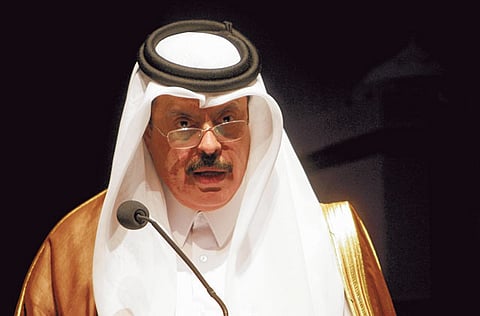GCC paving the way for the region's businesses
November summit will help firms to expand in Gulf

Dubai: The total number of licences granted to Gulf nationals to carry out economic activity in the UAE rose to 23,786, a senior member of the Ministry of Finance said Sunday at a conference in Dubai.
Khalid Al Bustani, Executive Director for International Financial Relations at the UAE Ministry of Finance, said: "The UAE has a strategic role in the Gulf Common Market in terms of the implementation of the GCC decisions and legislation, which serve the Gulf consumers and facilitate their movement in the region as well as business and work".
He said that in 2009 the number of commercial, vocational and industrial licences issued was 1,884. Of these, 685 came from Saudi.
Al Bustani said 23,786 GCC nationals were recorded in 2009 as being involved in economic activity in the UAE.
However GCC statistics showed that in 2008 the number of GCC nationals who had businesses in a GCC country was 27,567.
The number of GCC nationals who owned properties in the UAE had increased from 18,682 in 2008 to 22,707 in 2009.
The figures indicated 68 per cent of the property owners were from Kuwait while 12 per cent were Saudi Arabia, eight per cent from Bahrain, seven per cent were Omani and five per cent were from Qatar.
Al Bustani said the Gulf Common Market (GCM) gave equal rights to all Gulf nationals to be able to work in the private and public sectors across the GCC without restrictions.
"In 2009 the number of GCC nationals working in the government sector in the UAE was 1,932 and the number of those who were working in the private sector was 3,080," Al Bustani said.
"Most of the employees in the two sectors were Omani," he added.
GCC statistics also showed a remarkable increase in the number of GCC residents in the UAE, he said.
The figure of 5,608 in 2008 had risen to 7,650 in 2009.
Abdul Rahman Bin Hamad Al Attiyah, Secretary General of the Gulf Cooperation Council, said tens of thousands of GCC nationals had become familiar with the Gulf Common Market, which was set up in 2008.
Al Attiyah indicated that the Gulf Common Market was a cornerstone for economic integration in the Gulf, especially in relation to the free trade zone.
In addition it had encouraged the adoption of a raft of common economic, agricultural, commercial and economic development policies across the Gulf.
Al Attiyah said that at the GCC summit next month in Abu Dhabi, Council members were planning to agree to permit Gulf companies to open branches in all GCC countries, that would be granted the same status as a national company.
"This will enlarge the scope of the GCM and ease the transport and flow of goods and services across GCC countries," he said.
He added that liaison officers had been appointed to help Gulf nationals better understand the GCM's benefits, market potential and best practices.
Al Attiyah said to ensure the efficiency of the Gulf Common Market, a committee had been set up two years ago to evaluate and implement the rules and regulations arising from the GCC summit.
"The committee has already shrunk the number of unimplemented rules but in two years time all GCC legislation is expected to be active," he said.
He also said that on Nov-ember 23 the committee would work to eliminate all obstacles in the Gulf Common Market, including issues faced by the GCC Customs Union.
He said: "Although the GCC Customs Union is in a transitional stage, it could achieve more than 20 per cent growth, as it helped ease foreign trade by decreasing tariffs and by simplifying and unifying the import-export procedures.
"In addition... we are looking to set up a judicial commission to look into all cases and disputes in the GCM," Al Attiyah said.



